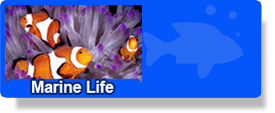Research Outcomes
Several studies show that the Scientific Literacy Project’s integrated science inquiry and reading activities are yielding gains for young children. Multiple sources of data (e.g., artifacts such as science notebook entries, photographs, activity boards, as well as video-recordings of children engaged in science activities) show that young children can ask meaningful questions, make predictions about outcomes, observe and record evidence, revise and represent their knowledge, and communicate their findings (Samarapungavan et al., 2008, 2011). Not only does participation in the SLP activities promote science learning, but it also fosters motivation for science (Mantzicopoulos et al., 2008; 2013; Patrick et al., 2009). This includes positive competence beliefs (e.g., I am really good at science, and I can do science), as well as perceptions that science is interesting (e.g., I like learning science) and worth pursuing.
In addition, participation in the SLP activities impacts children’s ideas about what science involves (Mantzicopoulos et al., 2009). Children begin to develop meanings about science that include both science content and processes that are integral to the conduct of science (e.g., asking questions, conducting observations, acquiring knowledge through reading relevant texts, conducting experiments, drawing conclusions, sharing their findings). In contrast, kindergarteners receiving only the traditional science lessons hold naïve views about science as a dangerous or magical enterprise that’s appropriate for older children. Their conceptions of science seem to be the result of learning through interactions with older siblings, or from experiences with store-bought science materials (e.g., volcano kits) or toys (e.g., Dr. Dreadful freaky food lab) that children play with at home. Participation in SLP seems to be especially beneficial for girls, seemingly eliminating the gender gap in motivation for science. This finding also supports the position that, in the absence of a coherent and sustained program of science instruction, young children learn the typically gendered views of science commonly presented in society (Patrick et al., 2009). These findings bolster the case that children’s early involvement with science in school contributes to their science knowledge and conceptual understanding. In addition, participation in SLP activities promotes young children’s enjoyment of science along with concepts of themselves as competent science learners.
This information should encourage teachers of young children to spend time on science instruction, and should provide a model for the feasibility and effectiveness of integration across content areas in the early grades. Listed below are the studies to date that have stemmed from the Scientific Literacy Project:
| Mantzicopoulos, P., Patrick, H., & Samarapungavan, A. (2013). Science literacy in school and home contexts. Cognition and Instruction, 31, 62-119. Click for abstract... |
| Mantzicopoulos,P., & Patrick, H., (2011). Reading picture books and learning science:Engaging young children with informational text. Theory into Practice, 50, 269-276.Click for abstract... |
| Samarapungavan,P., Patrick, H., & Mantzicopoulos, P. (2011). What kindergarten studentslearn in inquiry-based science classrooms. Cognition and Instruction, 29, 416-470....Click for abstract... |
| Mantzicopoulos, P.,& Patrick, H. (2010) “The seesaw is a machine that goes up and down:” Youngchildren’s narrative responses to science-related informational text.” Early Education and Development, 21,412-444. Click for abstract... |
| *** Recipient of The 2010 JRST Award from the National Association for Research in Science Teaching ***Patrick, H., Mantzicopoulos, P., & Samarapungavan, A. (2009). Motivation for learning science in kindergarten: Is there a gender gap and does integrated inquiry and literacy instruction make a difference? Journal of Research in Science Teaching, 46, 166–191. Click for abstract... |
| Mantzicopoulos, P., Samarapungavan, A., & Patrick, H. (2009). “We learn how to predict and be a scientist:”Early science experiences and kindergarten children’s social meanings about science. Cognition and Instruction, 27, 312-369. Click for abstract... |
| Samarapungavan, A., Mantzicopoulos, P., Patrick, H., & French, B. F. (2009). The development and validation of the Science Learning Assessment (SLA): A measure of kindergarten science learning. Journal of Advanced Academics, 20, 502-535. Click for abstract... |
| Patrick, H., Mantzicopoulos, P., & Samarapungavan, A. (2009). Reading, writing, and conducting inquiry about science in kindergarten. Young Children, 64(6), 32-38. Click for abstract... |
| Samarapungavan, A., Mantzicopoulos, P., & Patrick, H. (2008). Learning science through inquiry in kindergarten. Science Education, 92, 868–908. Click for abstract... |
| Patrick, H., Mantzicopoulos, P., Samarapungavan, A., & French, B. F. (2008). Patterns of young children’s motivation for science and teacher-child relationships. Journal of Experimental Education, 76, 121–144. Click for abstract... |
| Mantzicopoulos, P., Patrick, H., & Samarapungavan, A. (2008). Young children’s motivational beliefs about learning science. Early Childhood Research Quarterly, 23, 378–394. Click for abstract... |






